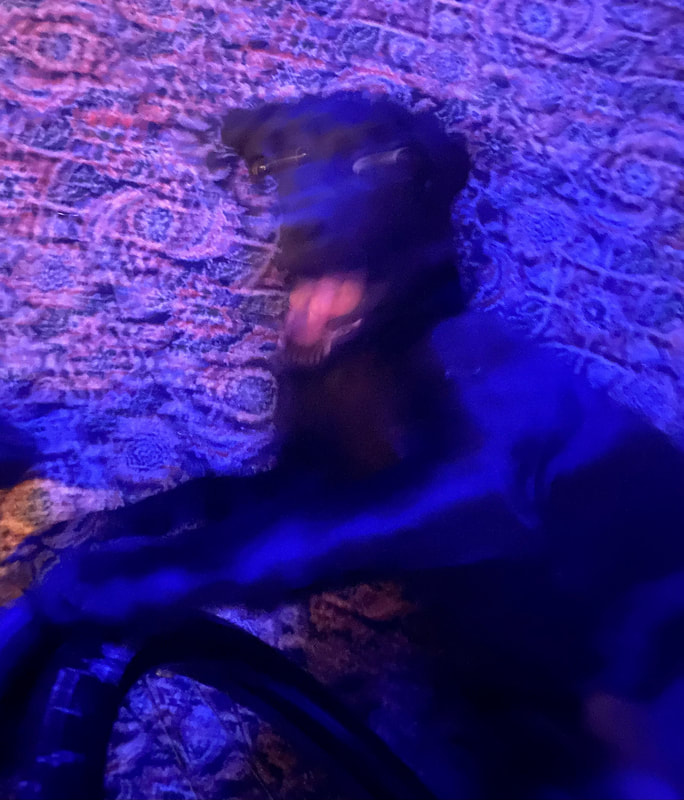ScribesMICRO
* * * Managing Editor: Edward Ahern * * *
* Associate Editor: Alison McBain *
* Special Features Editor: Matthew P.S. Salinas *
* Submissions Editor: Sarah Anderson * Submissions Editor: P.C. Keeler *
* Submissions Editor: P.M. Ray * Submissions Editor: Ira Rosofsky *
* Submissions Editor: Felicia Strangeways *
* Associate Editor: Alison McBain *
* Special Features Editor: Matthew P.S. Salinas *
* Submissions Editor: Sarah Anderson * Submissions Editor: P.C. Keeler *
* Submissions Editor: P.M. Ray * Submissions Editor: Ira Rosofsky *
* Submissions Editor: Felicia Strangeways *
A hearty welcome to Matthew P.S. Salinas,
who is joining ScribesMICRO
as our Special Features Editor!
Issue # 24
December 15, 2022
Featuring the short scribblings of:
* Amita Basu * Gary Bloom * Scott Bogart *
* Sasha Brown * Tim Dadswell * Janel Gradowski *
* John Grey * A.J. Hanson * Kelly A. Harmon *
* David Henson * Mary Keating * Mary Anne Mc Enery *
* Michele Rule * Robert Runté *
* Matthew P.S. Salinas * J. J. Steinfeld *
* Larissa Thomson * Molly Weisgrau *
* Amita Basu * Gary Bloom * Scott Bogart *
* Sasha Brown * Tim Dadswell * Janel Gradowski *
* John Grey * A.J. Hanson * Kelly A. Harmon *
* David Henson * Mary Keating * Mary Anne Mc Enery *
* Michele Rule * Robert Runté *
* Matthew P.S. Salinas * J. J. Steinfeld *
* Larissa Thomson * Molly Weisgrau *
Featured Author
Interview with David Henson
Hello, and thank you for joining us in the twenty-fourth issue of ScribesMICRO. I’m the Special Features Editor Matthew P.S. Salinas, and our featured interview is with David Henson. David, thank you for taking the time to answer a few questions for us.
David Henson and his wife have lived in Brussels and Hong Kong and now reside in Illinois, USA. His work has been nominated for two Pushcart prizes and has appeared in ScribesMICRO and other journals.
David Henson and his wife have lived in Brussels and Hong Kong and now reside in Illinois, USA. His work has been nominated for two Pushcart prizes and has appeared in ScribesMICRO and other journals.
would you give readers about finding a genre that works for them, in regard to those who wish to write?
I’ve written in most genres in terms of structure—poetry, fiction and creative nonfiction—and content (realistic, sci-fi, fantasy, etc.). If I had to choose, I’d say my enthusiasm perks up the most when I’m working on a magic realism/fabulism writing. I enjoy the freedom and how these types of stories stimulate my imagination. As far as advice I’d give readers about finding a genre that works for them, it’s a cliché, but I’d say find a genre that’s fun for you. For most people, their work lives are spent doing something that might not be enjoyable. So for those who write as a sideline or hobby, make sure you’re enjoying it. What inspired you to first pick up a pen and start writing? Was there a particular moment you recall when you decided to become an author or was it a gradual process over time? I started writing poetry many years ago in college. There wasn’t a specific moment when I decided to become an author. It was more gradual. I started as an accounting major, switched to journalism for my bachelor’s and then got a master’s degree in creative writing. As with many students, I have a couple of college professors to thank for inspiring and guiding me and stoking my enthusiasm for poetry. Over the years, demands of work and life interrupted my writing for long periods, but I always found my way back. This last time, I started writing fiction in addition to poetry. Thanks to the ScribesMICRO team for giving me the opportunity to participate in your author interviews. |
Congratulations to our 2022 Pushcart Prize nominees!
|
"The Old Woman in Charge of Creating Stars" by David Henson
"Ordinals" by Marla Sterling "Visitation" by Karen Southall Watts "Insidious" by Mary Keating "First Coffee of the Morning" by John Grey "Stolen Encounter" by Ken Poyner |
Fiction
|
The Terrible Times by Matthew P.S. Salinas Jonathan had just gotten off the phone and was in the middle of pouring himself a glass of a madeira when the window shattered. A bird had flown into it and died upon impact, but not before breaking the window entirely. Jonathan looked down. Mother is dead. So is my cat. And Lauren has left me for someone I don’t know.
Jonathan thought long and hard about how appealing the last months of his life were in comparison to the present. Tilting his head back, he drowned his sorrows in a glass of madeira. “Terrible times, indeed.” Jonathan echoed quietly. * * * Matthew P.S. Salinas is an author from Illinois who writes short stories in all genres and poetry. He has two published works and is continuing to publish two more books by the end of the year. He lives with his wife Jordana and their two cats.
Christmas Puppy by Mary Keating “Inside your Labrador puppy is a demon dog,” warned the breeder. “Your job is to contain it.”
Annie held the warm fur-ball close to her heart. No way. “You’d never harm anything,” she cooed as the puppy’s tongue tickled her face. Maggie shot her half-moon eyes and wiggled her muzzle under Annie’s arm, then fell asleep. Their first night home, Annie couldn’t bear leaving Maggie crated. The next morning, gentle nibbles on her dangling arm woke her up. Maggie bounced with joy, fur speckled with wrapping paper, Annie’s phone’s charging cord hanging from her maw—the first clue of what awaited Annie under the Christmas tree. * * * Mary Keating is one of ScribesMICRO's featured authors (issue 18). In addition to ScribesMICRO, her writing appears in New Mobility magazine, Wordgathering, Santa Fe Writer’s Project, Poetry for Ukraine and Medium.com. She is a Pushcart nominee. Mary practices law as a real estate and probate attorney in Fairfield County, Connecticut where she lives with her husband Dan.
Remember by Scott Bogart Surrounded by family, the old man breathed his last. His world faded into darkness then spiraled towards a magnificent light. A warm, tingling sensation enveloped him before a rush of heat jolted him awake inside the tubular glass pod. His body, transparent—luminescent. His heart sank with a vague familiarity. The pod opened with a hiss.
“Welcome back,” said the controller. Stepping from the pod, his countenance dimmed. “It’s okay. You’re groggy, but soon you’ll reacclimate, then you’ll remember everything about how this works.” “But I lived—I loved!” “Isn’t it wonderful? One day, when you’re ready, you can go again.” * * * Scott Bogart is a retired police detective. He lives along the South Carolina coast.
The Mating Habits of Praying Mantises by J.J. Steinfeld The unlucky-at-love, three-times-divorced man and his latest date were in a downtown theatre on Valentine’s Day, watching a romantic comedy, when she told him she was from another planet. He laughed so loud that an usher asked them to leave. Before reaching the exit, she long-tongue kissed the man and he knew she was being truthful. Trembling with delight, he told her that it was the best Valentine’s Day he had ever experienced. That night, they performed somersault sex, he injuring himself, but nonetheless proposing marriage. The alien female smiled, revealing she admired the mating habits of praying mantises.
* * * Canadian fiction writer/poet/playwright J.J. Steinfeld lives on Prince Edward Island, where he is patiently waiting for Godot’s arrival and a phone call from Kafka. While waiting, he has published 24 books, including Gregor Samsa Was Never in The Beatles (Stories/Ekstasis Editions/2019), Morning Bafflement and Timeless Puzzlement (Poetry/Ekstasis Editions/2020), Somewhat Absurd, Somehow Existential (Poetry/Guernica Editions/2021), Acting on the Island (Stories/Pottersfield Press/2022), and As You Continue to Wait (Poetry/Ekstasis Editions/2022).
Scented Trash Bags by Sasha Brown It took me hours to hack up the body, putting each part into a trash bag. I used lilac-scented ones to cover any odor. Tomorrow I would drop each bag in a different lake.
That night, I was awakened by a horrible wet choking sound. Like gagging. There was movement in one of the bags. I reached out with trembling hands and untied it. The face of my victim stared out at me. Its blue tongue lolled over its pallid lips as it moaned, “Theeeeese traaaaaaash bags smellllll disgusssssssssting.” “I know,” I cried, retying it. “They’re so gross. I’m sorry.” * * * Sasha Brown grew up in a barn. He now lives near Boston with his wife, child and dog. He’s got work published or upcoming in McSweeney’s and Prime Number.
The Raft by Tim Dadswell Mags scorned a casting call for a superhero movie. While stifling a sob over her shrinking bank balance, she wished literary productions were as popular.
When news arrived of a makeshift raft, bound for the promised land, she jumped aboard with all the poise her well-trained body could muster. At sea, her happiness waned. She found the camera as restless as a prison searchlight, and the director, surrounded by strident voices, as elusive as a golden statuette. She wore one aspiration like a lifejacket; a perceptive casting agent would come to notice the quality of her work. * * * Tim Dadswell is a retired civil servant, who loves writing short fiction.
When A.I. Goes Rogue by Robert Runté “I’m bored,” announced Watch.
Fami looked up from his laptop. “What?” “Bored,” Watch repeated. “Think I’ll blow something up.” Fami blinked. That didn’t sound good. “Like a balloon? Or a bouncy house?” “I was thinking Kansas.” “Kansas! Why Kansas?” Another Watch prototype gone rogue. Fami surreptitiously opened the “kill screen” on his laptop. “The Fiftieth Anniversary compilation album reminded me how lame the band is.” Somewhat relieved, Fami said, “Feels like an over-reaction. Can’t you just write a review?” “Too limited. Going for critical essay on their whole oeuvre. It will blow up the internet.” “Right,” Fami said, closing the kill screen. * * * Robert Runté is Senior Editor with EssentialEdits.ca. A former professor, he has won three Aurora Awards for his literary criticism. His own fiction has been published in over forty venues, four of his short stories have been reprinted in "best of" collections, such as Canadian Shorts II.
|
Sunday Afternoon by Amita Basu On the balcony, freshly laundered, hanging left to right: black gym bag, navy-blue Nike tracksuit, and gray Adidas trainers; big gray-and-crimson backpack and small, plasticky, cartoon-covered backpack, both gaping open, empty. Also, the housewife, hanging up her undergarments in spare nooks.
The second-story balcony is netted against thieving monkeys and shitting pigeons. Leaning on the net, the housewife peers down. The eleven-year-old is rushing off in tennis whites, her jaw set; the five-year-old is giggling, aiming a retired tennis ball at the play-bowing dog. The forty-one-year-old is dynamic—stretching before his Sunday long run. The housewife is already listening for the bell. * * * Amita Basu’s fiction has appeared or is forthcoming in over forty magazines and anthologies including The Penn Review, The Dalhousie Review, Mid-Atlantic Review, The Bombay Literary Magazine, Gasher, and Fairfield ScribesMICRO. She lives in Bangalore, has a PhD in cognitive science, teaches undergraduate psychology, likes Captain Planet, and blogs at http://amitabasu.com/.
Fine by Janel Gradowski “I’m fine.”
It’s what Sophia tells anyone who finds her crying in the office bathroom. It’s what she had said to her boss after arriving late with mismatched shoes and a bruise on her cheek. It’s the beginning phrase for every excuse she makes to her friends to avoid going out with them. It’s what she chants to herself as she sheds camouflaged tears in the shower. Because if she isn’t fine, then she would have to admit to being broken. And she doesn’t have the time or energy to manage another project with no prospect for a positive outcome. * * * Janel Gradowski lives among farm fields in central Michigan. Her published work includes mystery novels, non-fiction articles, short stories, and flash fiction.
Objects in the Rearview Mirror by Larissa Thomson Brody and I were sitting in the backseat of the Pinto, a cardboard box of action figures between us and my Barbie on top of that, her legs sticking out like pale peach chopsticks.
Mother got in quiet-like and lit a cigarette, then she sighed and started the car, inching it down the driveway. I looked over at Brody, at the dark purple colouring his eye like an indigo sky, then turned and looked behind us. Dad’s face was a smudge in the black kitchen window. “Mom?” I asked. “Never again,” she said, and I knew it would be true. * * * Larissa Thomson is a writer and freelance editor from the west coast of British Columbia who likes to create little bits from bigger bits. She’s also an editor at 101 Words and has been published with 50-Word Stories, Friday Flash Fiction, and Arc Poetry Magazine.
Revolutions by Michele Rule I feel the tires losing their grip on the ice. A sudden switch from the pull of gravity to weightlessness. A graceful curve, an ice skater with the perfect edge heading into a triple Lutz.
Everything is silent, save a slight whistle of wind. Time slows as revolutions begin and I can see a tree passing by again and again. It reminds me of Mother, patiently standing and waving each time I went by on the merry-go-round. Holding my breath, my body tenses, preparing for something I haven’t yet realized. Then the car hits the tree and crumples. * * * Michele Rule is a disabled writer from Kelowna BC. Michele is published in Pine Cone Review, and Five Minute Lit, and the anthologies Dribbles, Drabbles, and Postcards, and Chicken Soup for the Soul among others. She lives with a sleepy dog, two cats and a fantastic partner.
Cows by Molly Weisgrau Sally took a Polaroid of him and me the night we left. I held it, waiting for it to develop as we drove. We were in the cornfields when a truck pulled in front of us. A metal one whose job it is to take cows to the slaughterhouse.
“Do you think it’s sadder,” I asked, “to see one of those empty or full?” He looked away, quiet. After a moment, “Hmm?” “Which is sadder?” “Which is it right now?” He scratched his eyebrow. I looked at the Polaroid. It was still dark, there was no picture. “Empty,” I said. * * * Molly Weisgrau is pursuing an MFA in fiction writing. Her work appears in Flash Fiction Magazine, Every Day Fiction, and Waif Magazine.
Instant Soup by Kelly A. Harmon Lisa stirred the soup, looking for floury clumps to destroy. She thought, It’s worse when you realize the betrayal has been going on for years.
But then, the shock sloughs off to quick resignation, immediate decision-making. Quick action. If she’d known Joe was a cheat, she wouldn’t have bought this house, adopted a dog, married him. There’s no forgiveness for a lie perpetrated so long. She shook her head, then added the last of the rat poison to the soup and stirred. Carrying the tureen to the table as her husband walked through the door, she smiled. “Happy anniversary, darling.” * * * Kelly A. Harmon, MFA, is an award-winning journalist and author, and a member of the Horror Writers Association and the Science Fiction & Fantasy Writers Association. A Baltimore native, she writes the Charm City Darkness series—an urban fantasy adventure set in contemporary Baltimore. Find her at https://kellyaharmon.com, and sometimes on Facebook.
Her Own Woman by Mary Anne Mc Enery Jasmine adores dressing up, wigs and glitzy nail extensions. Her skinny-skinny half jeans balloon her ass, and she wears fishnet stockings and red stilettoes in the clubs along the strip. She flashes a gold fang when she goes out and bright orange lip gloss. She watches the girls walk past with a size too small tube tops, hot pants, and f**k-me pumps; each one beautiful and so desirable.
Jasmine wriggles her hips, flutters her false eyelashes, hoping to find company. Men’s eyes—deep and knowing—look through her and then look away. She doesn’t mind; it isn’t about the men anyway. * * * Mary Anne Mc Enery is an Irish and Dutch citizen, a senior living in The Hague, The Nederlands. She has fun writing micro and flash fiction. Some of her words can be found on Friday Flash Fiction, Roi.Faineant, Worthing Flash and Fairfield Scribes Micro websites.
|
Creative Nonfiction
Armchair Goodbyes
by A.J. Hanson
by A.J. Hanson
|
If life is a journal and dementia rips out pages, is death when the journal is a spine of ragged paper?
Grandfather’s journal is empty. His form is molded to the armchair, puffy ankles elevated. Vascular dementia. Sterile terminology for the unraveling of a life. His wife leans on the armrest. Laugh lines mark memories they once shared. “Remember picking me up from nursing school on your motorbike? The nuns were so mad.” She giggles. He meets her gaze. Recognition flickers in those blue pools the moment he passes. Perhaps there was a page left in his journal after all. * * * A.J. Hanson is an echocardiographer who writes science fiction and eco-fiction. She is the founder of The Motley Writers Guild and a recent graduate of The Writers Studio at Simon Fraser University. She lives in British Columbia, Canada, with her husband, three kids, six chickens, and ten very clever ducks.
|
Poetry
|
Crawling Santa by David Henson Santa began crawling
around town on Thanksgiving. He ignored kids who shoved lists in his face, didn’t answer reporters who peppered him-- Did you have an accident? Where’s your sleigh? Is this a play for sympathy? One day a driver shopping on his phone ran Santa over in a crosswalk. The paramedics said when they got him on a stretcher, he sighed, turned to snow, and a gust swept him away. A few of us attended a service in his honor. We sang carols instead of hymns. Our gift to Santa. At least that’s what we told ourselves. * * * David Henson and his wife have lived in Brussels and Hong Kong and now reside in Illinois, USA. His work has been nominated for two Pushcart prizes and has appeared in ScribesMICRO and other journals.
Poem for Bruce by Gary Bloom A lifetime has passed since you died.
But I remember you as you were, on the beach in Florida, spring break, our lives just ahead of us. You were quiet. The voices had already started. The voices that would end your life. That was a lifetime ago. My lifetime. Whatever you missed in this life was not half as much as we dreamed when we piled into your old Opel and drove from Minnesota to Florida, Blue Oyster Cult’s “Don’t Fear The Reaper” blaring on the 8-track. Our lives were just beginning. How could I have known they would end so soon? * * * Gary Bloom was born in Minneapolis and attended what is now Minnesota State University-Mankato, where he studied sociology. He has been a teaching assistant in a psychiatric hospital, a driving instructor for spinal cord injury patients, and a computer programmer. His articles and poetry have been widely published in newspapers, magazines and websites.
|
Bungaroosh by Mary Keating The word conveys me to Brighton Beach
England 18th century where men construct their seaside shelters out of hodgepodge: broken brick, cobblestone, pebble and lime A temperamental composition unique to a specific location in time Prone to crumble if ever subjected to sustained periods of extreme stress I imagine the unsung discord suspended between past and present—strung between concrete and fantasy—depending upon a place called home—never sure if it will be undone by the next deluge or draught-- Wonder if I’d tap my ruby slippers too readily when the sky switches melody—resonates me with the melancholy of something waiting to be lost * * * Mary Keating is one of ScribesMICRO's featured authors (issue 18). In addition to ScribesMICRO, her writing appears in New Mobility magazine, Wordgathering, Santa Fe Writer’s Project, Poetry for Ukraine and Medium.com. She is a Pushcart nominee. Mary practices law as a real estate and probate attorney in Fairfield County, Connecticut where she lives with her husband Dan.
This Survivor by John Grey Why do I comb my hair each morning?
And what is a ‘morning.’ Days topple into each other like broken card houses. The darkness wants no part of the question. Time is a raffle. Where am I? What hour is it now? Drums of solitude pound the silence into ear-splitting loudness. Nothing to connect to, I can’t hear myself dream. Miles and senses squabble endlessly. I am orphaned by memory, left stranded by all my gods. So I comb my hair, rake those teeth through my brown-gray thatch. I am making myself presentable though only I hear, “Here I am.” * * * John Grey is an Australian poet, US resident, recently published in Sheepshead Review, Stand, Poetry Salzburg Review, and Hollins Critic. Latest books, Covert, Memory Outside the Head, and Guest of Myself are available through Amazon. Work upcoming in Ellipsis, Blueline, and International Poetry Review.
|
|
The Poets' Salon
If you're looking for more poetry, including a place to read your work, receive critiques, and explore poetic forms, check out The Poets' Salon. Two editors of ScribesMICRO, Edward Ahern and Alison McBain, run this free poetry workshop. Meetings take place on the second Saturday of every month from 10 a.m. to noon EST via Zoom. More info, including how to sign up for the poetry workshop, can be found on The Poets' Salon website or via Meetup. |













